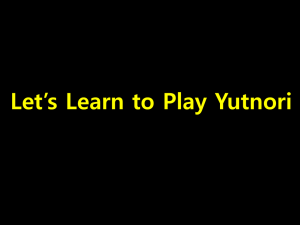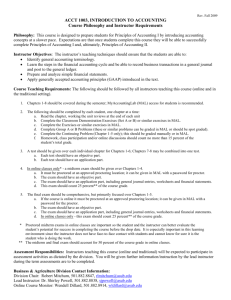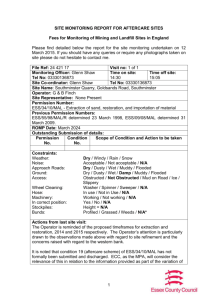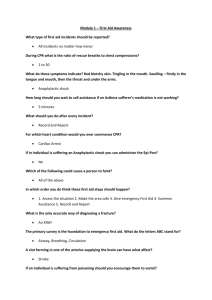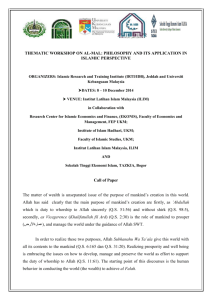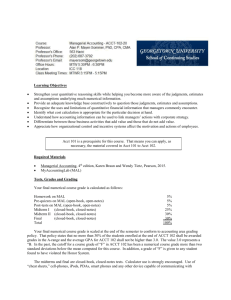ENGL 1020 Comp II - Jennifer Fuller's Homepage
advertisement
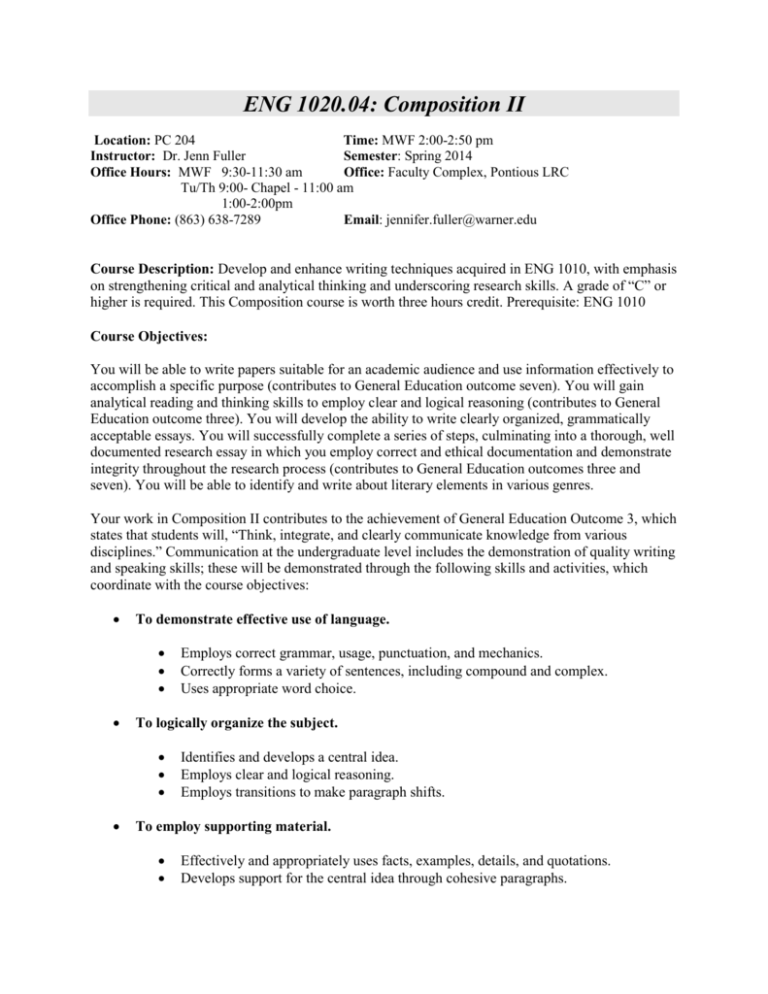
ENG 1020.04: Composition II Location: PC 204 Time: MWF 2:00-2:50 pm Instructor: Dr. Jenn Fuller Semester: Spring 2014 Office Hours: MWF 9:30-11:30 am Office: Faculty Complex, Pontious LRC Tu/Th 9:00- Chapel - 11:00 am 1:00-2:00pm Office Phone: (863) 638-7289 Email: jennifer.fuller@warner.edu Course Description: Develop and enhance writing techniques acquired in ENG 1010, with emphasis on strengthening critical and analytical thinking and underscoring research skills. A grade of “C” or higher is required. This Composition course is worth three hours credit. Prerequisite: ENG 1010 Course Objectives: You will be able to write papers suitable for an academic audience and use information effectively to accomplish a specific purpose (contributes to General Education outcome seven). You will gain analytical reading and thinking skills to employ clear and logical reasoning (contributes to General Education outcome three). You will develop the ability to write clearly organized, grammatically acceptable essays. You will successfully complete a series of steps, culminating into a thorough, well documented research essay in which you employ correct and ethical documentation and demonstrate integrity throughout the research process (contributes to General Education outcomes three and seven). You will be able to identify and write about literary elements in various genres. Your work in Composition II contributes to the achievement of General Education Outcome 3, which states that students will, “Think, integrate, and clearly communicate knowledge from various disciplines.” Communication at the undergraduate level includes the demonstration of quality writing and speaking skills; these will be demonstrated through the following skills and activities, which coordinate with the course objectives: To demonstrate effective use of language. To logically organize the subject. Employs correct grammar, usage, punctuation, and mechanics. Correctly forms a variety of sentences, including compound and complex. Uses appropriate word choice. Identifies and develops a central idea. Employs clear and logical reasoning. Employs transitions to make paragraph shifts. To employ supporting material. Effectively and appropriately uses facts, examples, details, and quotations. Develops support for the central idea through cohesive paragraphs. Required Texts: Schlib, John and John Clifford. Making Arguments about Literature. Boston: Bedford/St. Martin’s, 2005. Kirszner & Mandell. The Brief Wadsworth Handbook, Seventh Ed. Methodology: This workshop and discussion-based seminar course will focus on your written work in response to a series of readings and prompts designed to provide you with the opportunity to explore and participate in a wide-variety of writing styles, purposes, and techniques. You will engage with the texts both in the form of online assignments and several longer essays, as well as in classroom discussion. In addition to interacting with outside texts, you will also present your own writing for discussion, and be responsible for responding to your peers’ work in thoughtful, provoking, and considerate ways. In addition to directing conversations about content, I will also provide you with the opportunity to examine and explore the stages of the writing process as well as providing techniques for writing so that you will become more familiar with the organizational approach to writing expected at the university level. Evaluation: Major Essays (60%) Over the course of the semester, you will write three major essays, including two researched arguments. These assignments are expected to exhibit correct style and documentation (when appropriate) according to standard MLA or APA guidelines. The essays will correspond to our class discussions and your responses. I do not accept late work for a passing grade so make sure to turn your essays in on time. You will have opportunities to revise your work. Online Assignments and In-Class Activities (15%) Online assignments on Moodle may ask you to take notes on your reading, answer questions from the textbook or me, respond to the readings, draft parts of papers and/or take quizzes. You will finish these assignments before the beginning of class and be ready to comment on your responses—they will provide the catalyst for class discussion. We all have off days, so you may miss two (2) assignments without impacting your grade. In-class activities include thoughtful and constructive peer review of other students’ work, prewriting or drafting essays, and/or quizzes on the reading. These daily assignments cannot be made up; however, I may exempt you from an assignment if you come to me prior to class with a valid, university-approved excuse. Participation and Attendance (10%) Because your individual voice is essential to classroom discussion and activities, class attendance and participation is part of your grade. Missing or coming late to classes will cost you points. If you miss nine (9) classes, for any reason including athletic events, you will fail the course. Also, because writing improves through feedback, participation in this course involves allowing your peers the opportunity to read your work in a critical yet respectful way. Remember, no one likes a troll but any paper can be improved. You should always strive to become better writers and thinkers and to help your classmates achieve their highest potential as well. I may use your writing anonymously for the benefit of the class, but you may opt out by sending me an e-mail request. Final Project (15%) You will write a short paper and prepare a presentation that will serve as your final examination. This assignment will allow you to demonstrate the practical writing skills and techniques that you have learned throughout the course. Late Work Policy One of the biggest issues real world employers have with new workers is time management problems. Therefore, late essays will not be accepted for a passing grade. Unless you have contacted me in advance for an extension, I WILL NOT assign late work any grade higher than an F. All work is due at the beginning of class on the due date. Work is due on the day it is due whether you are physically in class or not: an absence does not excuse you from turning in work on the day it is due. If you know you are going to be out of town or have a “busy weekend” you are always welcome to turn an essay in early. General Assessment Criteria A D or F paper fails to meet the standards of acceptable writing. It is filled with grammatical and spelling mistakes that make reading the paper difficult and interfere with the reader’s understanding. The thesis or main idea of the paper is broad and general—e.g., immigration is an important issue today. The paper does not have a coherent structure and/or does not respond adequately to the assignment. Sentences to do not connect with each other, nor do paragraphs. A C paper is adequately written. It may have grammatical and spelling mistakes, but these do not make the paper difficult to read and understand. The thesis or main idea is general and broad, but the paper has a structure that is generally clear. However, the connections between sentences and paragraphs are often weak—e.g., “It is important to consider.” Though a reader can understand the paper, the writer has not confronted the issue in an interesting way. A B paper moves beyond a satisfactory completion of the assignment. It has a main idea or thesis that is clear, specific, and interesting to argue—e.g., “Attitudes on immigration correlate more closely with educational than with religious background.” The thesis is phrased in such a way that it implies how evidence will be used in the argument. Note the difference here between a C and a B paper; the C paper is often a recitation of facts, but it does not have a strategy for using this evidence. As you read a B paper, you find yourself thinking about the ideas the writer presents. There may be a few grammatical errors in the paper, but these will be relatively minor. An A paper may not be any more correct than a B paper. Organization may be messier and style rougher because the writer deals with much more complex ideas and strays into unfamiliar territory. But the writer is clearly in control of a style that is lively, precise, and correct. The A paper may have a similar thesis and use the same evidence as the B paper, but the writer uses evidence more confidently and critically. The writer may challenge one of the conclusions or findings of a source, even if he or she basically agrees with it. For this reason, the paper sounds authoritative. Grading Scale A 93% and higher A- 90% to 92% B+ 87% to 89% B 83% to 86% B- 80% to 82% C+ 77% to 79% C 70% to 76% D 60% to 69% F less than 60% There will not be an opportunity for extra credit. Faith and Learning: You are encouraged to respond to texts in light of your faith. Studying social issues in light of your faith causes you to think critically about your place in society and how to fulfill Jesus’ commandments. Fulfilling one’s Christian obligation is not separate from other academic or social endeavors. A critical thinker is able to view multiple perspectives; in this way, a student in this course learns to respect other viewpoints while boldly advancing the cause of Christ. University Attendance Policy: Students are expected to attend all classes as part of the normal learning process. Students who miss the first class of any course for which they have registered may be administratively withdrawn from that course. If they cannot attend the first class and do not wish to be dropped from the course, they must notify the instructor or leave a message for him or her with a faculty secretary prior to the first class session. In addition, students must be especially consistent in attendance during the first two weeks of the semester in order to confirm registration and to be listed on the official course roster. Students who fail to follow this procedure and who have not received prior approval from the instructor for absences may be administratively withdrawn from the courses in question by certification of the instructor on the official course roster. Instructors keep accurate records of attendance. Extended absences for illness and emergency reasons must be approved by the Dean of the appropriate school. Student absences should not exceed the equivalent of three weeks of class time. If any student feels their absences were due to a hardship beyond their control (family emergency, etc.) that student may appeal to the Director of General Studies. Remember, attendance will impact your grade in this course— we miss your unique perspective when you are absent. Academic Honesty Policy: All work developed for and used in this course should be your own. The use of another’s work, without documentation, is a dishonest practice and should be avoided. Plagiarism occurs when: • a student copies another’s work directly without acknowledgment • a student paraphrases another’s work without documentation or acknowledgment • a student borrows an idea or concept, not considered common knowledge, without acknowledging the source. Students may refer to pages 35-37 in the WU Catalog regarding academic honesty standards and sanctions for violations of those standards. Intentional academic dishonesty (plagiarism, cheating, conspiracy, misrepresentation, etc.) will be considered egregious and will result in severe penalties up to immediately failing the course. Plagiarism is cheating and undermines both your education and your reputation. Accommodations for Students with Disabilities: Students with disabilities requesting academic accommodation(s) must register with and provide professional documentation to the Office of Disabilities Services. Students must provide the professor/instructor with a copy of the Office of Disabilities Services Accommodation Plan indicating the need and type of accommodation(s) no later than the second week of class or its equivalent. Service Learning Policy: Service learning is not credit for service; service learning is credit for the learning that accompanies the service. All students will have service activities included in either select courses or as added requirements for graduation. Dress Code: Students must observe the Warner University Dress Code policy as stated in the Student Handbook. Please make note of the average temperature of the assigned classroom and dress appropriately. Technology in the Classroom: Unless being used directly for the benefit of learning, technology, including cell phones, should not be used or seen in the class. If you wish to use technology to enhance your learning in this class, I ask you to explain why 1) this is useful to your growth as a student and 2) how it will not become a distraction to yourself or other students. I will ask any student to leave the class when I feel that his or her use of technology has become disruptive; I also reserve the right to ban any future use of technology in the classroom. E-mail Policy: E-mails that do not follow the basic standards of academic writing will receive the single response “SENT” from me until they are formatted properly. SENT is an acronym for “clear Subject line, Edited for a professional audience, with your Need quickly and clearly communicated, from a Trustworthy e-mail account.” Elastic Clause I reserve the right to alter this document in any way to meet the evolving demands of the course. I will inform you of any changes, and the most updated copy of this syllabus may always be found on Moodle. Date Course Schedule Key: Making Arguments About Literature (MAL); Kirszner &Mandell (KM) Papers and Reading due Class Activities Week 1 01/15 01/17 Chapter 1: “What is Literature? What is Argument?” (1-9 MAL), Chapter 2: “Developing Arguments about Literature” (10-29 MAL) Introduction to 1020, Plagiarism Discussion, Syllabus Overview, Expectations, Online Assignments Discussion: Defining “Literature,” Four Poems About Work Week 2 01/20 01/22 01/24 Week 3 01/27 01/29 01/31 Week 4 02/03 02/05 02/07 Week 5 02/10 02/12 02/14 Week 6 02/17 02/19 02/21 Week 7 02/24 MLK DAY NO CLASS Chapter 2: “Developing Arguments about Literature” (29-39 MAL), Selection from Chapter 4: “Making Arguments about Stories” (79-92 MAL) Selection from Chapter 4: “Making Arguments about Stories” (93-98 MAL) “Two Kinds” (238-46 MAL) Selection from Chapter 4: “Making Arguments about Stories” (99-104 MAL) “The Things They Carried” (63043 MAL) Selection from Chapter 4: “Making Arguments about Stories” (104-109 MAL) “The Handsomest Drowned Man in the World” (584-88 MAL) Selection from Chapter 3: “Writing an Argument”(40-47 MAL) In-Class Essay Discussion: Arguments about Literature, Assign Paper 1 Selection from Chapter 3: “Writing an Argument”(47-61 MAL) Paper 1 Rough Draft Due Discussion: Outlining, Planning and Composing Selection from Chapter 3: “Writing an Argument” (61-78 MAL) Discussion: Revising Paper 1 Due, Billy Collins: “Introduction to Poetry” (On Moodle), MLA/APA Refresher Selection from Chapter 5: “Making Arguments about Poems” (115-27 MAL) Poetry Introduction, Citation Practice Selection from Chapter 5: “Making Arguments about Poems” (127-29 MAL), “Lying in a Hammock” (728-29 MAL), “Because I could not stop for Death—” (364-65 MAL) Selection from Chapter 5: “Making Arguments about Poems” (130-32 MAL), “Theme for English B” (328-39 MAL), “Incident” (673 MAL) Selection from Chapter 5: “Making Arguments about Poems” (133-37 MAL), “One Art” (664 MAL), “Mending Wall” (684-685 MAL) Selection from Chapter 8: “Writing a Research Paper” (195-203 MAL) Discussion: Speaker and Tone, Diction and Syntax Figures of Speech Discussion: Mothers and Daughters Discussion: War Stories Discussion: Fantasy and Reality Discussion: Exploring Literature Discussion: Pre-writing Peer Review Discussion: Writing About Poetry, Assign Paper 2 Discussion: Sound, Rhythm and Meter, and Theme Discussion: Drafting Discussion: How to Find Literary Research (Librarian?) 02/26 02/28 Week 8 03/3 “Evaluating Research” (171-198 KM), “Integrating Research” (198-219 KM) Paper 2 Rough Draft Due Discussion: How to Integrate and Evaluate Research Peer Review Paper 2 Due, Annotated Bibliographies (133-34, 154 KM) Library Assignment Assign Annotated Bib Selection from Chapter 8: “Writing a Research Paper” (210-28 MAL), Selection from Chapter 7: “Making Arguments about Essays” (171 MAL), “Letter from Birmingham Jail” (886-899 MAL) “Shooting an Elephant” (497-502 MAL) Discussion: Can Essays Cause Change? “The Deer at Providencia” (503-506 MAL) Conferences Discussion: Gender Expectations Meet in PRC 03/05 03/07 Week 9 03/10 03/12 03/14 Week 10 Conferences 03/17 Discussion: The Power of Reflection Meet in Classroom at assigned time Meet in Classroom at assigned time Annotated Bib Due Writing Workshop Paper 3 Rough Draft Due Peer Review 03/19 03/21 Week 11 Spring Break 03/24 Spring Break 03/26 Spring Break 03/28 Week 12 Paper 3 Due 03/31 Sophocles: Antigone (733-746 MAL) to “I did it. I don’t deny a thing.” Sophocles: Antigone (746-759 MAL) to “To the guards.” 04/04 Week 13 Sophocles: Antigone (759-771 MAL) NO CLASS NO CLASS NO CLASS Intro to Antigone Assign Final Project Discussion: Authority and Rebellion 04/02 Discussion: Authority and Rebellion Discussion: Actions and Consequences 04/07 A Raisin in the Sun, Act I, Scene 1 (MAL) A Raisin in the Sun, Act I, Scene 2 (MAL) 04/11 Week 14 A Raisin in the Sun, Act I, Scene 3 (MAL) 04/14 Discussion: Family and Community 04/09 Discussion: Family and Community Discussion: Pride and Power 04/16 A Raisin in the Sun, Act I, Scene 4 (MAL) Discussion: Pride and Power, Last Quiz of the Year (Woo Hoo!) Good Friday NO CLASS 04/18 Week 15 Planning Session 04/21 Group Work Final Project Due Presentations Final Project Due. Presentations Final Project Due. Meet at 2:00 pm Evaluations 04/23 04/25 Final 04/28
